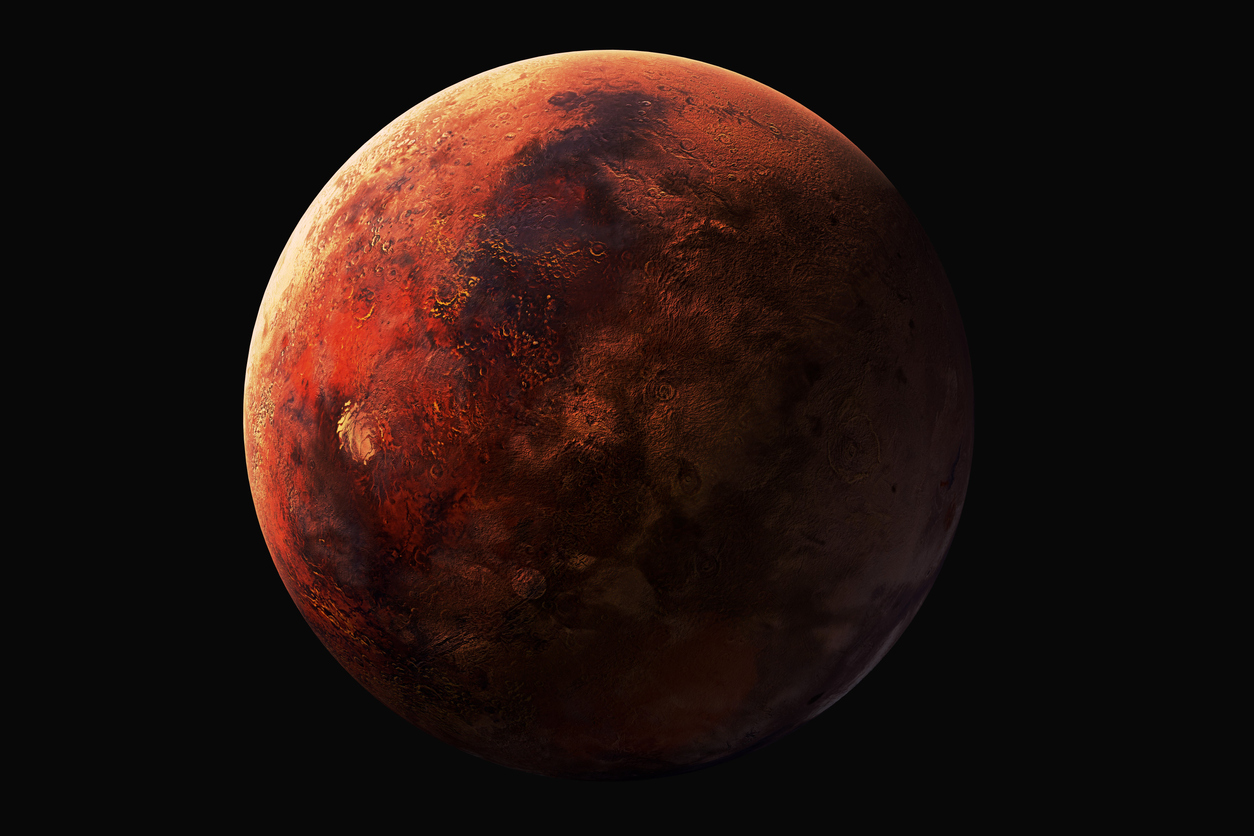Methane gas was detected on Mars 6 years ago. Scientists might finally know why.

A free daily email with the biggest news stories of the day – and the best features from TheWeek.com
You are now subscribed
Your newsletter sign-up was successful
Almost six years after NASA's Curiosity rover first detected hints of methane on Mars, scientists may have uncovered the reason it was there.
On June 16, 2013, the Curiosity rover's sensors picked up a spike of methane gas levels in the Gale Crater, the 96-mile crater where it had landed in 2012, The Guardian explained. This reading immediately raised some questions, since methane is a gas often produced by microbial life forms on Earth (although it can be released in other ways). Since then, many have speculated on whether this methane blip was a sign of Martian life, just a chemical reaction, or even an error caused by Curiosity's equipment.
But now, additional data provides proof that the methane did indeed come from Mars, Science Alert reported. The European Space Agency's Mars Express mission also caught the spike in methane levels on that date in 2013, proving that it wasn't a sensor malfunction or a mistaken reading by Curiosity.
The Week
Escape your echo chamber. Get the facts behind the news, plus analysis from multiple perspectives.

Sign up for The Week's Free Newsletters
From our morning news briefing to a weekly Good News Newsletter, get the best of The Week delivered directly to your inbox.
From our morning news briefing to a weekly Good News Newsletter, get the best of The Week delivered directly to your inbox.
After reviewing the ESA's data, scientists took a closer look at what might be causing the methane spike for just that one day. By cross-referencing readings from Mars Express and Curiosity, they determined that the methane originated about 300 miles east of the Gale Crater, in a region known as Aeolis Mensae.
In a study published Monday in the journal Nature Geoscience, the scientists present their theory: that the "geological faults" in the Aeolis Mensae region could have broken permafrost nearby and released methane that may have been trapped within it.
This study may ask more questions than it answers — we still don't know how that Martian methane came to be — but it's still "the first step towards an answer," said Marco Giuranna, one of the study's authors. Read more at The Guardian.
A free daily email with the biggest news stories of the day – and the best features from TheWeek.com
Shivani is the editorial assistant at TheWeek.com and has previously written for StreetEasy and Mic.com. A graduate of the physics and journalism departments at NYU, Shivani currently lives in Brooklyn and spends free time cooking, watching TV, and taking too many selfies.
-
 The problem with diagnosing profound autism
The problem with diagnosing profound autismThe Explainer Experts are reconsidering the idea of autism as a spectrum, which could impact diagnoses and policy making for the condition
-
 What to know before filing your own taxes for the first time
What to know before filing your own taxes for the first timethe explainer Tackle this financial milestone with confidence
-
 The biggest box office flops of the 21st century
The biggest box office flops of the 21st centuryin depth Unnecessary remakes and turgid, expensive CGI-fests highlight this list of these most notorious box-office losers
-
 Key Bangladesh election returns old guard to power
Key Bangladesh election returns old guard to powerSpeed Read The Bangladesh Nationalist Party claimed a decisive victory
-
 Epstein files topple law CEO, roil UK government
Epstein files topple law CEO, roil UK governmentSpeed Read Peter Mandelson, Britain’s former ambassador to the US, is caught up in the scandal
-
 Iran and US prepare to meet after skirmishes
Iran and US prepare to meet after skirmishesSpeed Read The incident comes amid heightened tensions in the Middle East
-
 EU and India clinch trade pact amid US tariff war
EU and India clinch trade pact amid US tariff warSpeed Read The agreement will slash tariffs on most goods over the next decade
-
 Israel retrieves final hostage’s body from Gaza
Israel retrieves final hostage’s body from GazaSpeed Read The 24-year-old police officer was killed during the initial Hamas attack
-
 China’s Xi targets top general in growing purge
China’s Xi targets top general in growing purgeSpeed Read Zhang Youxia is being investigated over ‘grave violations’ of the law
-
 Panama and Canada are negotiating over a crucial copper mine
Panama and Canada are negotiating over a crucial copper mineIn the Spotlight Panama is set to make a final decision on the mine this summer
-
 Why Greenland’s natural resources are nearly impossible to mine
Why Greenland’s natural resources are nearly impossible to mineThe Explainer The country’s natural landscape makes the task extremely difficult